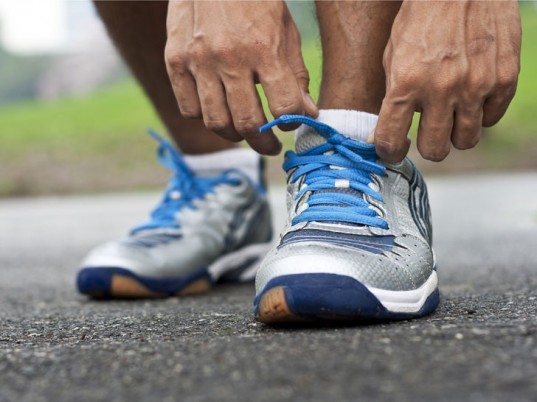Of course you know I’m biased… consulting a dietitian is a great way to learn about IBS and how to manage symptoms when starting, changing, or maintaining your exercise routine. However, hearing from others who are experiencing similar concerns is always inspiring and helps us to see the light at the end of the tunnel!
This past week, we caught up with Stuart McPherson, a Human Kinetics student in his second year at St. Francis Xavier University. He is a member of the Cross Country and Track Team. In high school, Stuart was a very competitive athlete qualifying for provincials for cross country running, cross country skiing, and track and field a total of 4 times throughout high school! When his symptoms started, he was not sure it was IBS, but they were greatly affecting his running. He has since adjusted to his diagnosis and continues to enjoy running. Stuart was kind enough to answer our questions about managing IBS symptoms while performing at a competitive level.
VZ: Vanessa Zoras (Clairmont Digestive Clinic correspondent)
SM: Stuart McPherson
Notes from the RD: Suggestions and advice from Stephanie Clairmont, Registered Dietitian
VZ: What does an average day look like in terms of meals and snacks and your exercise schedule?
SM: My schedule consists of eating within an hour of getting up around 7:30 am, lunch around 12-1 pm, snack at 3 pm, running practice at 5-7 pm, and dinner right after that.
VZ: Which foods do you find you tolerate best before exercise?
SM: I seem to tolerate complex carbohydrates the best before exercising. Some fruits, mostly bananas, are also tolerable. Most other things before a run, such as meats, fats, etc. usually make my stomach feel like there’s a piano inside of it when I run!
Note from the RD: At the Clairmont Digestive Clinic, we recommend eating a complete meal two hours before a workout. If you need something to curb your appetite, try something simple like a banana 30 to 60 minutes before a workout.
VZ: How do you refuel during and after a long workout?
SM: I refuel usually with chocolate milk if I can get my hands on it. I usually have some sort of pasta for the meal right after I run. I don’t really refuel with anything during workouts however.
Note from the RD: For those following a low FODMAP diet, look for lactose-free chocolate milk or try having a complete snack (or meal) within 30 minutes of your workout such as nuts and fruit or an tuna sandwich or roasted chicken pasta.
VZ: Have you found any protein bars or energy drinks that do not worsen your symptoms?
SM: I have never been a big fan of protein bars and Gatorade/Powerade never really bothered me (caused symptoms).
Note from the RD: Check out our article on vitamin and mineral supplements for exercise for more information.
VZ: Do pre-race nerves strongly affect your IBS symptoms?
SM: YES! Before races when I felt nervous I had to use the bathroom 4-6 times in a span of 2 hours leading up to the race.
VZ: Have your IBS symptoms ever stopped you from running?
SM: On bad days, yes it did prevent me from running, simply because I couldn’t run 30 minutes without having to go to the bathroom. It was at the point where I was dreading something that I normally love because I didn’t want to feel sick during it.
Note from the RD: In clinic, we find that clients that incorporate a low FODMAP diet experience less symptoms and less “bad days”.
VZ: How do you prevent and/or manage IBS flare-ups during training and competitions?
SM: Now I eat a lot of fibre for breakfast and lunch to make sure nothing is in my system that will hit me during my workout at 5 pm.
Note from the RD: Fibre can affect people differently. We recommend including small sources of soluble fibre through the day such as chia seeds, raspberries, etc. Read more about fibre for IBS here!
VZ: Do you participate in other activities regularly to balance your running? When you change the activity, frequency, and intensity of your workouts, do you notice a change in your IBS symptoms?
SM: To balance out running I study quite a bit. I go out and have a couple drinks around 2-3 times a month and I watch Netflix whenever I’m not doing either of those things …haha. When I increase intensity the symptoms hit me sooner, which is the most visible change.
VZ: Do you have any tips or suggestions for those suffering from IBS who are looking to incorporate exercise into their daily routine?
Note from the RD: It’s important to include exercise as part of your balanced routine to help overcome symptoms of IBS. For more on mind-body health, read this great article.
SM: I would suggest eating a fibrous breakfast/lunch prior to the workout. If training for a certain event, I would suggest periodizing you’re training schedule (starting with lower intensity/volume) so you’re body can get accustomed to it. Also I’d suggest working out somewhere where a washroom is within short distance, just in case! Finally don’t push through it during a workout if the symptoms are bad!
Note from the RD: I agree. Definitely workout somewhere near a washroom until you understand exactly how your body is going to react.
We hope you enjoyed our interview with a fellow IBS’er! The more we stick together and share our personal victories, the better we all will be.
Much love & good eating,
Stephanie

